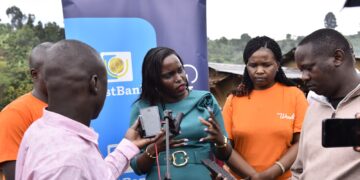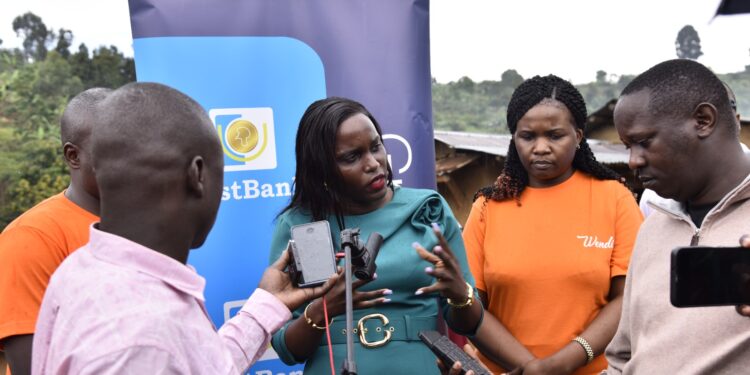PostBank Uganda, through her Wendi Mobile Wallet, and the International Fertilizer Development Centre (IFDC) under the BRIGHT (Building Resilience and Inclusive Growth of Highland Farming System for Rural Transformation) project has signed a partnership agreement aimed at improving access to financial services to highland farmers through Village Saving and Loan Associations (VSLAs).
According to BRIGHT project baseline survey results conducted in Rwenzori, Kigezi, and Elgon regions where the project is being implemented, the main bottlenecks to financial inclusion include the high cost of financial services due to high interest rates that range from 22% to 120% per annum.
VSLAs also have a high interest rate, limited awareness of available financial services and products by smallholder farmers, lack of brick-and-mortar branches for financial institutions in the project area, and collateral requirements that hamper VSLAs/farmer groups and women/youth access to financial services among others.
Additionally, sharing of all saved funds at the end of the cycle (12 months) by VSLAs limits the availability of funds for lending at the beginning of the new cycle as well as financial products and services offered by FSPs (Financial Service Providers) are not tailored to the needs of smallholder farmers.
Speaking at the launch of the partnership and onboarding of the smallholder farmers, Brenda Mpoora, Head of Fintech Business at PostBank Uganda highlighted the bank’s commitment to fostering prosperity for Ugandans which requires innovative approaches of tailoring financial services and products to enable communities to participate in social economic activities like agriculture which employs most Ugandans.
“Through Wendi mobile wallet solution, we are glad to continue the journey of empowering users and groups, particularly those with limited access to traditional financial services to access a savings account where they can secure their savings and earn a 10% interest per annum on their daily savings, as well as perform financial transactions and access credit,” Ms. Mpoora said.
She added, “The partnership between IFDC/BRIGHT and Wendi wallet that we are witnessing today is a great opportunity for our farmers to be equipped with financial literacy so that they know how they can access financial services conveniently, which services can be accessed by both PostBank and non-PostBank customer’s.”
Agriculture is the predominant economic activity in rural areas which harbor about 76 percent of Uganda’s population. The sector employs about 70 percent of the working population and provides the first job for three-quarters of those aged between 15 and 24 years. The NDP III identifies agriculture as one of the key growth opportunities with the highest potential to generate employment and have positive multiplier effects on other sectors. It has played a central role in Uganda’s economy accounting for 26.42 percent of the country’s exports at a growth rate of 3.8 percent and forming 1.65 percent of the GDP.
Roger Gilbert Nyakahuma, the IFDC BRIGHT project Financial Inclusion Manager acknowledged PostBank Uganda for joining efforts with IFDC/ BRIGHT to bridge the financial inclusion gap through alternate digital transaction platforms like Wendi mobile wallet which is a game changer in scaling the access to financial services in areas where there are no physical banking facilities.
“The objective of this partnership is therefore to facilitate the linkage of BRIGHT project VSLAs to the Wendi mobile wallet solution to improve access to financial products and services as well as address some of the challenges that were identified during the BRIGHT project baseline survey conducted in Rwenzori, Kigezi and Elgon regions where the project is being implemented,” Nyakahuma said.
He adds, “Our partnership with Wendi is 1300 VSLA across Elgon, Rwenzori, and Kigezi regions and each VSLA has an average of about 25-20 members. This means that we are targeting at least 40,000 farmers and for the Elgon region, we are targeting 121 VSLA and an average of 3000 farmers.”











